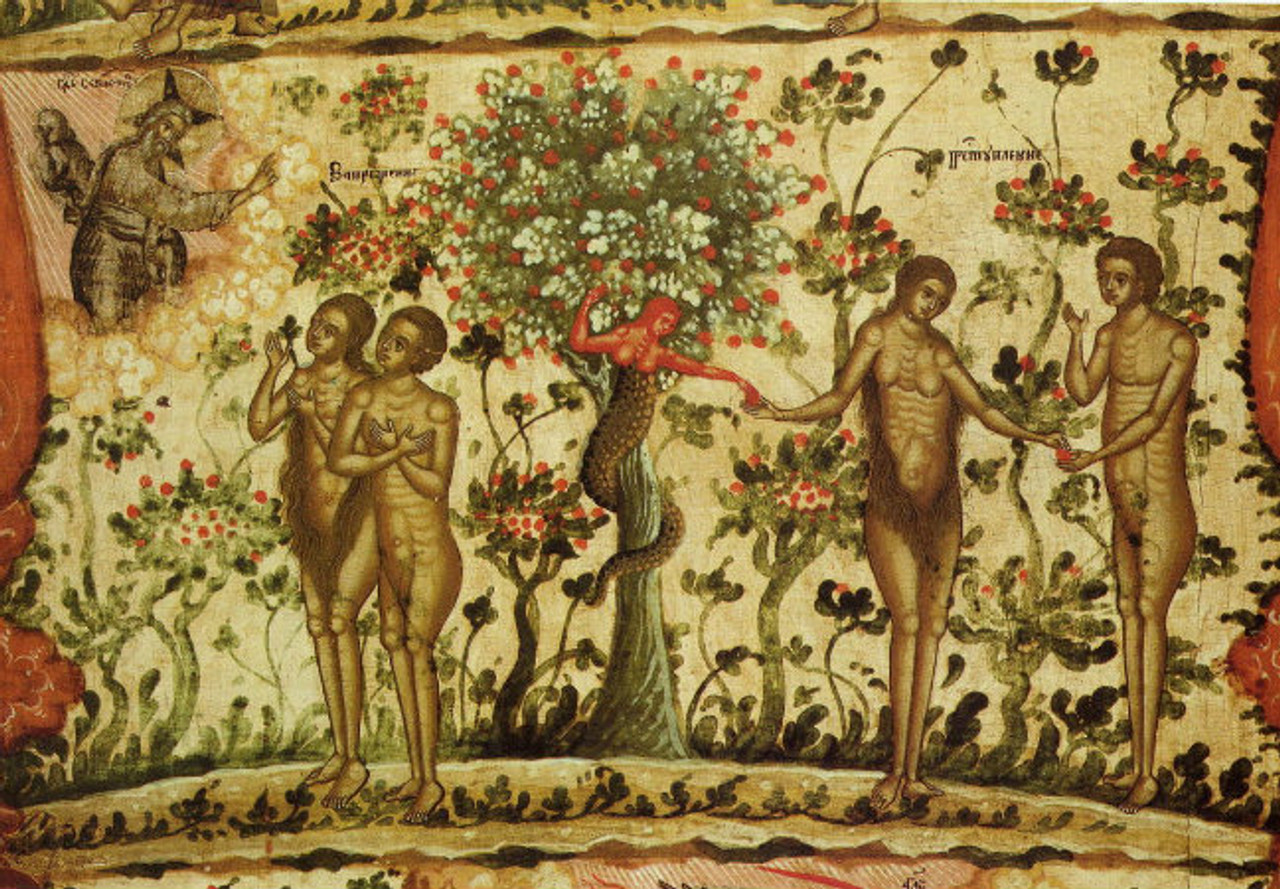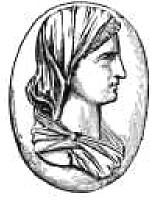From the perspective of the Marcionite Church, the Genesis creation narratives contained within the Hebrew Bible stand not as divinely inspired truth, but as flawed, mythologized attempts to rationalize human origin by a tribal people still grappling with their understanding of divinity. The Genesis account, written and compiled by Hebrew scribes, presents a portrayal of creation that is internally inconsistent, anthropocentric, and deeply problematic when measured against the teachings of Christ and the nature of the true Heavenly Father.
Historically, the rejection of the Genesis creation myth has been a defining hallmark of Marcionite theology. As early as the fourth century, this doctrinal divide was significant enough to prompt counter-efforts from orthodox theologians. In De viris illustribus, Jerome notes that two Christian writers, Appion and Candidus, composed a joint treatise specifically to defend the six-day creation narrative of Genesis against the teachings of Marcion. Their work stands as evidence not only of Marcion’s outright denial of the Genesis account but also of how deeply that rejection disturbed the emerging Catholic orthodoxy.
Marcionite Creationism and Reason
Marcionite Christians believe in creationism: we affirm that God is the absolute creator of Heaven, Earth, and life itself. We do, however, reject the creation myth as depicted in the Book of Genesis in the Hebrew Bible. We do not believe the Earth was created in six literal days or that the Earth is only a few thousand years old. Our belief in Prima Scriptura allows us, where answers are lacking in scripture, to turn to our own human reason and logic. Therefore, we defer to science on the finer details of creation while still retaining our belief that, ultimately, God created the universe.
As the Apostle Paul wrote of Christ: “Who is the image of the invisible God, the firstborn of every creature: For by him were all things created, that are in heaven, and that are in earth, visible and invisible, whether they be thrones, or dominions, or principalities, or powers: all things were created by him, and for him: And he is before all things, and by him all things consist.” (Colossians 1:15–17)
Marcion’s disciple, Apelles, also proposed that the material world may have been formed by an archangel—possibly acting as an intermediary. This view reflects an openness to nuance in understanding creation, without ascribing the flawed world of matter to the perfect, loving Heavenly Father. Apelles, while remaining faithful to the foundational theology of Marcion, developed and refined his teacher’s critiques through his own work, Syllogisms. The very title of this book suggests a deliberate effort to build upon Marcion’s Antithesis, which set the Hebrew Bible and the Testamentum in stark contrast. In Syllogisms, Apelles employed logical reasoning to demonstrate the falsity and absurdity of various passages in the Hebrew Bible, particularly those that ascribe irrational or immoral behavior to God. Our knowledge of this work survives primarily through the Church Father Ambrose of Milan, who quoted Apelles in his fourth-century treatise De Paradiso in order to refute him—ironically preserving Apelles’ arguments in the process. Among these surviving fragments are incisive critiques of the Genesis account and other Hebrew Bible narratives. Apelles questions whether a true God would command Adam to obey a law he knew would be broken, concluding that such a command is either ignorant or superfluous—qualities incompatible with divine wisdom. He also highlights the logistical impossibility of the Noahic Ark story, particularly the absurdity of fitting even four elephants into the described dimensions. Elsewhere, he questions how the tree of life could confer more vitality than the very breath of God. Through these arguments, Apelles stood firmly in the Marcionite tradition of exposing the Hebrew scriptures as the product of a false deity, not the true God revealed in Christ.
Two Creation Stories, Two Gods
The Book of Genesis begins not with one unified narrative, but two distinct and contradictory creation stories. In the first (Genesis 1), “Elohim” creates the heavens and the earth over six days, culminating in the simultaneous creation of male and female humans. The second story (Genesis 2), attributed to “Yahweh”, presents a different order: Adam is created first, then animals, and finally Eve from Adam’s rib. These narratives are not merely stylistic variations; they reflect fundamentally different theological and cosmological views.
The Marcionite Church recognizes this duality as evidence that the god portrayed in Genesis is not the true God revealed through Jesus Christ. Instead, Genesis describes the actions of a lesser, ignorant, and at times malevolent deity—a false god—who sought control over a people and masked his limitations with demands for obedience and fear. This creator, Yahweh, is not the invisible, loving Father spoken of by Christ, but a jealous, wrathful entity bound by materialism and anthropomorphic weakness.
This division also reflects the historical reality that Genesis was compiled from multiple sources and traditions. The Priestly and Yahwist authors had distinct theological aims, and the redactors who combined their writings did not always harmonize them. The result is a fragmented mythos rather than a consistent theology of creation. For the Marcionite, this inconsistency points to the fallibility of the text and supports the claim that it speaks of a false god, not the one revealed by Christ.
The Moral Failure of the Genesis Deity
Genesis portrays a god who, rather than exhibiting omniscience and compassion, acts with impulsiveness and insecurity. In Genesis 3, this deity places a forbidden tree in the Garden of Eden and forbids Adam and Eve from eating its fruit, under threat of death. Yet when they disobey—tempted by a being traditionally called a “serpent” but identified in many ancient accounts as a bearer of knowledge—they do not die, but rather become self-aware. The god’s response is not enlightenment or understanding, but punishment, banishment, and curses.
From a Marcionite perspective, this episode demonstrates that Yahweh was less concerned with moral development or free will than with control and ignorance. He sought to keep humanity blind and servile, reacting with anger when his creation dared to gain knowledge—a divine attribute. In contrast, the true God, as revealed by Christ, desires that humanity know the truth, walk in light, and be free.
Even more troubling is Yahweh’s deception. He tells Adam that eating from the tree will lead to death that day, yet both Adam and Eve continue to live. It is the serpent who tells the truth: that eating the fruit will open their eyes. The idea that the Genesis deity lies while the serpent enlightens is blasphemous to traditional orthodoxy, but entirely consistent with the Marcionite understanding of the false god versus the true God of Christ.
A Creator of Violence and Division
The Genesis narrative continues with fratricide, the mysterious mark of Cain, and the inexplicable fear of other people who supposedly should not exist if Adam and Eve were the first humans. Later, Genesis 6 recounts that the “sons of God” took human wives, producing the Nephilim. Yahweh, seeing the “wickedness” of humanity, decides to destroy all living things with a flood—except for Noah and his family.
This god, who regrets his own creation, resorts to genocide as a solution. Such a portrayal is utterly incompatible with the Father preached by Jesus, who taught love for enemies, forgiveness, and the sanctity of life. The Marcionite Church holds that the deity of Genesis is not the source of spiritual goodness, but a being whose actions mirror those of ancient tyrants, masking cruelty as divine justice.
The doctrine of divine regret and destruction raises serious theological concerns. Why would a perfect and all-knowing god create something he would later wish to destroy? The Marcionite position is that such behavior is evidence of imperfection, which by definition excludes this deity from being the true God. Yahweh’s actions more closely resemble those of volatile mythological figures than of the unchanging Father revealed through Christ.
The Earth: A Wasteland Restored by False Gods
Genesis opens with the earth “formless and void,” shrouded in darkness. The text then describes Elohim hovering over the waters and commanding the formation of light, land, vegetation, and life. Yet careful reading—and comparisons with Mesopotamian, Sumerian, and Babylonian myths—reveal that this account is not original, but a derivative retelling shaped to fit a monotheistic narrative.
Furthermore, the Genesis deity does not create ex nihilo (from nothing) as the true God would, but reshapes what already exists. This act of “creation” is more akin to organizing chaos than true divine origination. The Marcionite understanding of the cosmos begins with a perfect spiritual realm created by the unknown, invisible Father—not with a damaged material world restored by fallible beings.
The notion that the earth was a wasteland before this “creation” suggests a restoration, not an origin. Some scholars have posited that Genesis 1:2 implies a cosmic catastrophe had already occurred. This aligns with Apelles’ idea that a lesser being, perhaps an archangel, attempted to fashion a world but failed to produce perfection. This world—our world—bears the marks of such flawed workmanship.
Anthropocentrism and Gender Inequality
Genesis reflects an archaic worldview where creation is centered entirely around humanity, and especially man. In the second creation story, woman is created as an afterthought, a helper for man, from his rib. This portrayal institutionalizes gender inequality at the theological level, embedding it into the cultural consciousness of countless generations.
The Marcionite gospel, in contrast, recognizes the equal spiritual value of all souls, male or female. The Father does not create in hierarchy, nor does He bind beings to servitude. He liberates through truth and spiritual awakening. Genesis, by contrast, imposes roles and curses as punishment, betraying the character of a god more concerned with order and dominance than love.
This imbalance set the tone for centuries of patriarchal structures justified by scripture. A god who creates a woman merely as a support figure for a man, and then punishes her for seeking knowledge, cannot be reconciled with the Christ who uplifted women and revealed their equal worth in the kingdom of God.
The Lie of the “Fall” and the Inheritance of Guilt
Traditional Christian doctrine speaks of the “Fall of Man” as a catastrophic event ushering in sin and death. Yet, from a Marcionite lens, there was no fall—only awakening. Adam and Eve did not plunge humanity into ruin by disobeying a jealous god; rather, they took the first step toward enlightenment by gaining knowledge of good and evil. The so-called punishment was an act of vengeance, not justice.
Furthermore, the idea of inherited guilt is foreign to the teachings of Jesus. The true God does not punish children for the actions of their ancestors. The concept of original sin serves only to bind people to a cycle of shame and dependence upon the very institution that promotes it. The Father revealed through Christ invites each soul into direct relationship, free from ancestral guilt and the burdens of ancient curses.
The so-called “curse of Adam” has often been used to justify not only theological pessimism but also social oppression—especially of women and marginalized peoples. Such misuse of scripture is made possible by the flawed foundation laid in Genesis. The Marcionite tradition urges believers to see this not as a fall from grace, but as humanity’s first flicker of divine light.
Flood, Tower, and the Scattering of Nations
Genesis continues with a series of episodes in which Yahweh again exhibits insecurity and authoritarian control. In the Tower of Babel narrative, humanity’s attempt to unify and reach the heavens is met with divine sabotage: languages are confused, and people scattered. Why would a benevolent God fear human collaboration and ambition?
To the Marcionite Church, this fear-based intervention exposes the Genesis deity as a petty ruler, threatened by progress and unity. The true God does not fear human advancement; He encourages it in the spiritual realm. Christ did not confound language, but brought understanding and reconciliation.
The scattered tongues of Babel contrast with the harmony of Pentecost, where the Holy Spirit enabled understanding across languages. In this contrast, the Marcionite Church sees another affirmation that the Genesis deity is not the Father of Jesus Christ, but a false god who disrupts unity out of fear.
A Deity of War and Possession
The deity of Genesis later becomes the god of Israel, demanding obedience, sacrifices, and territorial conquest. He selects one tribe as his own and commands them to wage war, destroy cities, and commit acts of violence in his name. This tribal deity, with his demands for exclusivity and ritual, resembles not the Heavenly Father but a local god seeking dominance.
Marcion taught that Jesus came to reveal the one true God—a God of mercy, forgiveness, and universality. The contrast could not be starker: the Hebrew Bible’s god rules by fear, while the Father of Jesus draws by love. Genesis is the introduction to a god who punishes enlightenment, condemns disobedience, and favors ethnic partiality.
The very notion of a “chosen people” set apart for divine favor contradicts the universal message of Christ, who offered salvation to all. The Marcionite view sees this not as continuity but as contradiction—another proof that Yahweh is not the Father of Jesus Christ.
Reclaiming the True Creation
The Marcionite Church calls for a reexamination of creation—not through the mythic lens of Genesis, but through the revelation of Christ. The true beginning lies not in dust and command, but in Spirit and freedom. Creation, in its truest form, is spiritual and good, untouched by the flawed material cosmos of the false god.
As Paul wrote, “For the earnest expectation of the creature waiteth for the manifestation of the sons of God.” (Romans 7:19). This creation is not the chaotic, war-torn world of Genesis, but a new creation inaugurated by Christ—one in which there is no Jew or Gentile, male or female, slave or free.
The true creation is one that reveals the invisible God in beauty, truth, and love—not one marred by fear, curses, and exclusion. This is the message the Marcionite Church proclaims: not a return to Genesis, but a forward gaze toward the spiritual kingdom of God.
Conclusion
Genesis presents a distorted view of creation and divinity, reflecting the limitations and fears of its human authors and the character of a lesser god. From the Marcionite perspective, the true God—the Father of Jesus Christ—is entirely absent from its pages. To follow Christ is to reject the tribalism, violence, and authoritarianism of the Genesis deity and embrace the gospel of love, grace, and truth.
The world does not need more myths that bind; it needs the liberating truth of the one true God who is light and in whom there is no darkness at all. Through Christ, we are called not only to question old narratives but to walk boldly in the newness of spiritual creation.



